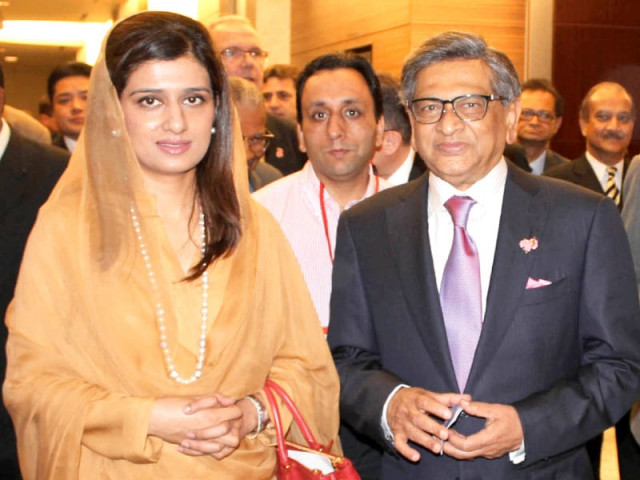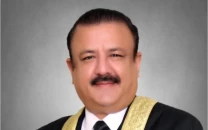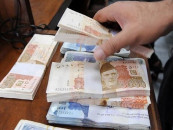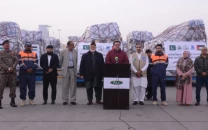Krishna visit: Meagre expectations on both sides
Indian PM’s visit in November hinges on substantive progress in the Mumbai attacks investigation.

Even though newspapers will be vigilantly monitoring the Indian foreign minister’s visit to Pakistan starting today, hopes of progress on the diplomatic front are pegged low in New Delhi and Islamabad despite recent efforts to build trust between the two neighbours.
Indian Minister for External Affairs S M Krishna is due to arrive in Islamabad on a three-day visit to review progress made in peace talks with Pakistan. The talks are part of the ongoing ‘composite dialogue,’ which resumed in early 2011 after remaining suspended for over three years due to tensions between the two countries after the November 2008 Mumbai attacks.
Apart from formal talks, the Indian foreign minister is expected to meet key political leaders from both the ruling and opposition parties. The foreign secretaries of both countries will also meet on Friday (today) to prepare an agenda for ministerial-level talks, which were originally scheduled for July this year, but were delayed due to presidential elections in India.
‘Little chance of breakthrough’
In recent months, the two sides have made considerable progress to improve trade ties, but have yet to achieve a breakthrough on some of the most contentious issues.
The Indian prime minister while attending the Non-Aligned Movement meetings in Tehran, where he also met President Asif Ali Zardari, had said he would prefer not to visit Pakistan in the absence of measurable outcomes, in a clear reference to Pakistan bringing those guilty for the Mumbai carnage to justice.
The statement reflected the Indian foreign ministry’s bottom line: A high-level visit to Pakistan, without any substantive progress on suspected Pakistani abettors of the Mumbai attacks, would risk political ire at home. However, Pakistan believes that the peace process must not be held hostage to an isolated incident.
A Pakistan foreign ministry office official told The Express Tribune that the foreign ministers of both countries would review the progress made during the second round of peace talks and firm up a roadmap for the next phase.
“There is little chance of any major breakthrough,” said the foreign ministry official when asked about the likely outcome of fresh talks between the two countries.
However, sources said both countries may sign a new visa regime during Krishna’s visit. In May, Pakistan and India finalised a new visa regime aimed to discard decades-old travel restrictions on cross-border movement of their citizens. But the accord could not be formally signed, apparently due to Pakistan’s insistence that it must be inked at the political level.
On the other hand, Indian Prime Minister Manmohan Singh is personally seen as being bullish and hopeful that a breakthrough in ties may still happen. Both sides, however, are dealing with a narrow window to resolve longstanding issues. If the Indian PM doesn’t make his trip to Pakistan in November, both countries will begin preparations for election year, which is 2013 in Pakistan and 2014 in India.
Mumbai attack deadlock
Meanwhile, Alok Bansal, a retired officer of the Indian navy, believes that since Pakistan has consistently denied allegations pertaining to the Mumbai attacks, maintaining that India has not given it incontrovertible evidence about their involvement, it was unlikely that the two countries would make any concrete progress during the current visit.
“It would have been extremely difficult for the two governments to move from their stated positions on this issue at the best of times. The inherent weakness of the two governments at this juncture makes it virtually impossible,” Bansal added.
Be that as it may, Bansal said it wasn’t necessarily all doom and gloom. He believes the current round of talks could see the resolution of the Sir Creek dispute, for which joint survey has been completed, adding that the development could facilitate the delineation of maritime boundary between the two countries.
“Similarly, the perceived infringements of the Indus Water Treaty with respect to the three western rivers traversing through Jammu and Kashmir are more a matter of perception than reality and can easily be resolved by greater transparency and interaction,” said Bansal.
Meanwhile, experts and analysts agree that positive developments in trade, transit and commerce can be expected during Krishna’s visit. According to sources in the Indian civil aviation ministry, India has sought talks with Pakistan on a direct air link between Islamabad and New Delhi, with additional flights between business centres. An Indian official said the issue would be discussed at the commerce secretary-level talks due later this month, if Islamabad responded positively to the proposal.
Echoing earlier statements by the Indian government, Krishna called for the ‘right’ atmosphere during his visit and stressed for bringing those guilty for the Mumbai carnage to justice, in an exclusive interview to the Press Trust of India.
Published in The Express Tribune, September 7th, 2012.


















COMMENTS
Comments are moderated and generally will be posted if they are on-topic and not abusive.
For more information, please see our Comments FAQ